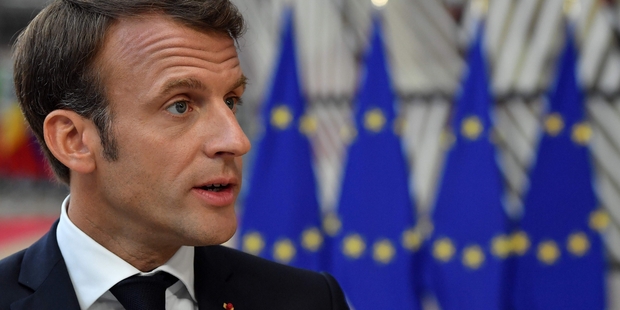No progress has been made in the European Union’s common position on the decision to start accession negotiations with Macedonia and Albania. France still has no final position, and it seems President Macron himself will have the final say.
EU Council sources told MIA that no new draft conclusions on Macedonia and Albania have been adopted at today’s Ambassadors’ Council in Brussels, where the Finnish Presidency hoped to make progress in the enlargement discussion.
This morning there was a brief overview of the positions of all EU member states, usually the same countries expressing support for a quick start of negotiations with the two countries, mainly the eastern and southern European countries, the Netherlands proving more favorable to North Macedonia than to Albania, Belgium considers internal EU reform is important, but France still has no final position, diplomats from the Western countries present at the meeting told MIA.
For now, officially, Paris adheres to the well-known formula that “supports the European perspective of the Western Balkan countries”, a position that must maintain two principles: respect for the rule of law and the fight against corruption in the countries and internal reform of the European Union before.
Council sources say that France is not expected to clearly define its position at the earliest by the General Affairs Council in Luxembourg on October 15, but it is not excluded that the issue will be left to EU leaders two days later at the summit in Brussels.
President Macron will make the decision personally on behalf of France, diplomats in Brussels say.
According to other diplomatic sources in the EU, choosing to make the decision at the level of heads of state and government is a Paris strategy to cope with the pressure faced by countries seeking immediate opening of negotiations with the two countries.
Another unknown is the Dutch decision expected next week. According to signals from the Dutch parliament and the Dutch foreign minister, The Hague is likely to demand a clearer separation between Skopje and Tirana, or greater conditionality for Albania.
This is consistent with the position of the German Bundestag, which recently voted for clear support for Macedonia, but conditional on Albania.
Domestic diplomats fear that if such a scenario occurs, some member states could insist on the “Skopje-Tirana” package and oppose launching negotiations only with Macedonia.
The position of these countries is based on the fear that negotiations with Macedonia alone would cause dissatisfaction in Albania and could have negative consequences on the stability in the region as well as on the dialogue between Pristina and Belgrade.
Supporters of Macedonia, on the other hand, recall that the absence of a reward for the compromise Macedonia made on the name dispute sends a “very dangerous” signal to Belgrade, which “sees no reason” to take political risk over the Kosovo issue, EU diplomats who are familiar with the content of the discussions between the member states explain.




Comments are closed for this post.